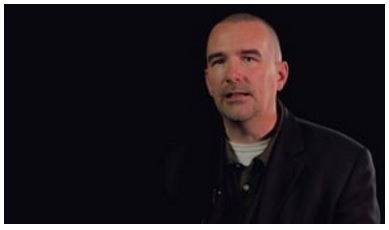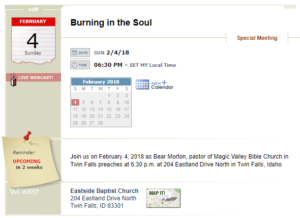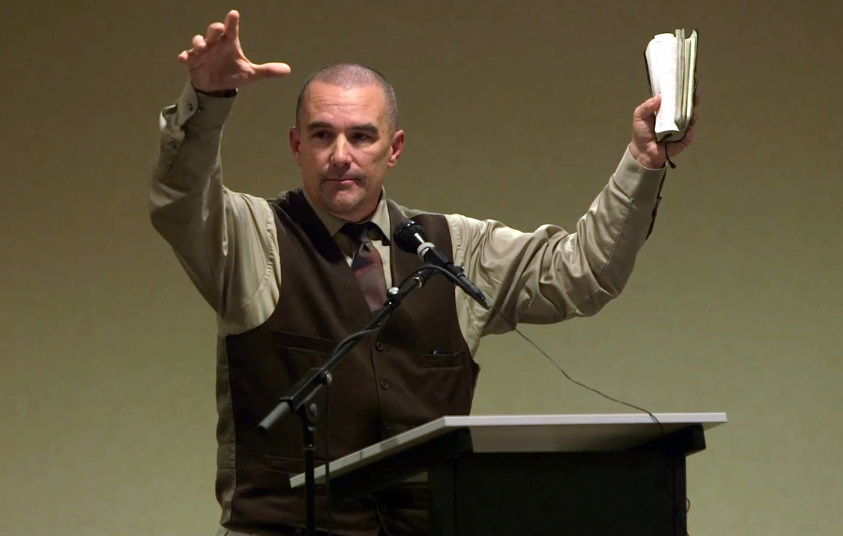NOTE: This is the print version of my defense on the Biblical nature of God at an inter-religious dialog group I belong to. This is a monthly gathering of different religious leaders of different religions intended to have honest dialog about what we believe. Not an exercise of universally ecumenical platitudes of different ways of looking at the same god. This is an honest discussion of what we believe based on our religious texts. For me, this is a place where I have engaged in fair debate of what I believe.
Tonight (March 19, 2018) I have the responsibility to give a discourse on the nature of God contrasted by the Muslim and Mormon gods. It promises to be an exciting exchange. I wish you could be there with me. For now, most of the conversations are closed to the dialog group.
Here is the print version of what I will say:
__________________________________________________
I hold to the historic Baptist confession statements on the nature of God.
To speak of the nature of God, I hold to the sufficiency of the Holy Bible. To say “Holy Bible”, I mean the Old and New Testament only. I receive it as a certain and infallible standard of knowledge of God, faith, salvation, and holiness.
“The light of nature and the works of creation and providence so clearly demonstrate the goodness, wisdom, and power of God that people are left without excuse; however, these demonstrations are not sufficient to give the knowledge of God and his will that is necessary for salvation. Therefore, the Lord was pleased at different times and in various ways to reveal himself and to declare his will to his church [His people]. To preserve and propagate the truth better and to establish and comfort the church with greater certainty against the corruption of the flesh and the malice of Satan and the world, the Lord put this revelation completely in writing. Therefore, the Holy Scriptures are absolutely necessary, because God’s former ways of revealing his will to his people have now ceased.”
2 Timothy 3:15–17; Isaiah 8:20; Luke 16:29, 31; Ephesians 2:20. Romans 1:19–21; Romans 2:14,15; Psalm 19:1–3. Hebrews 1:1. Proverbs 22:19–21; Romans 15:4; 2 Peter 1:19, 20. (1925 New Hampshire Confession)
I hold agreement with confessional statements throughout history that place the Holy Bible as the only reliable authority to know God. All of the Holy Bible was given by inspiration of God to be this authoritative word of God. This is not a position of opinion, this is an exercise of intentional investigation using the rules of logic to defend all opinions of God against this reliable standard.
From the 1689 Second London Confession: (similar to the Westminster Confession)
The Lord our God is one, the only living and true God. He is self-existent and infinite in being and perfection. His essence cannot be understood by anyone but him. He is a perfectly pure spirit. He is invisible and has no body, parts, or changeable emotions. He alone has immortality, dwelling in light that no one can approach. He is unchangeable, immense, eternal, incomprehensible, almighty, in every way infinite, absolutely holy, perfectly wise, wholly free, completely absolute. He works all things according to the counsel of his own unchangeable and completely righteous will for his own glory. He is most loving, gracious, merciful, and patient. He overflows with goodness and truth, forgiving iniquity, transgression, and sin. He rewards those who seek him diligently. At the same time, he is perfectly just and terrifying in his judgments. He hates all sin and will certainly not clear the guilty.
1 Corinthians 8:4, 6; Deuteronomy 6:4. Jeremiah 10:10; Isaiah 48:12. Exodus 3:14. John 4:24. 1 Timothy 1:17; Deuteronomy 4:15, 16. Malachi 3:6. 1 Kings 8:27; Jeremiah 23:23. Psalm 90:2. Genesis 17:1. Isaiah 6:3. Psalm 115:3; Isaiah 46:10. Proverbs 16:4; Romans 11:36. 13Exodus 34:6, 7; Hebrews 11:6. 14Nehemiah 9:32, 33. 15Psalm 5:5, 6. 16Exodus 34:7; Nahum 1:2, 3.
To start with the authority of the Bible is of importance to me because this is the place that identifies what standard I would use here to define the nature of God as defined by the Bible. If the Bible is true then I must consider what it says, not only about the nature of God but also the nature of other gods. If the Bible is not true then logic would require that I declare the God of the Bible to not be a true god at all. Logic requires that the reader of the Bible accept its claims as true or false. I receive it as true and satisfied to use is to address the nature of God.
My use of the English word “God” is to mean Yahweh. The God of Abraham, Isaac, and Jacob. (arguably not at all the same deity of Islam or Mormonism.)
- The God of the Bible is defined as one, only one. (Deuteronomy 6:4, Isaiah 43:10-11, 1 Corinthians 8:6, Jude 4, etc…)
- The God of the Bible is defined as a jealous God. (Exodus 34:14, An almighty God is not arrogant to be jealous of worship being given to another. Logic would say that the most high is not irrational to make exclusive claims about a loving God. A loving God would want all to worship the true God. A loving God would not love if he shared His glory with any lesser.)
- The God of the Bible is described as a God with no equal. There is no other. (Isaiah 45:5)
- The God of the Bible is described as a spirit. (John 4:24)
- The God of the Bible is described as an eternal God, not having a beginning or an end. (Job 36:26, Isaiah 57:15)
- The God of the Bible is described as an immutable God. (Malachi 3:6, Numbers 23:19, Hebrews 13:8)
- The God of the Bible is described as an all knowing God. (Psalm 147:5, 1 John 3:20)
- The God of the Bible is described as an all present God. (1 Kings 8:27, 1 JOhn 3:24)
- The God of the Bible is described as a triune being. (see references on Baptist Faith and Message)
James White, of Alpha and Omega Ministries, argues that to speak of the trinity it is necessary to define and distinguish the terms “being” and “person.”
“It would be a contradiction, obviously, to say that there are three beings within one being, or three persons within one person. So what is the difference? We clearly recognize the difference between being and person every day. We recognize what something is, yet we also recognize individuals within a classification. For example, we speak of the “being” of man—human being. A rock has “being”—the being of a rock, as does a cat, a dog, etc. Yet, we also know that there are personal attributes as well. That is, we recognize both “what” and “who” when we talk about a person.”
“The Bible tells us there are three classifications of personal beings—God, man, and angels. What is personality? The ability to have emotion, will, to express oneself. Rocks cannot speak. Cats cannot think of themselves over against others, and, say, work for the common good of “cat kind.” Hence, we are saying that there is one eternal, infinite being of God, shared fully and completely by three persons, Father, Son and Spirit. One what, three who’s.”
NOTE: We are not saying that the Father is the Son, or the Son the Spirit, or the Spirit the Father. It is very common for people to misunderstand the doctrine as to mean that we are saying Jesus is the Father. The doctrine of the Trinity does not in any way say this!
The three Biblical doctrines that flow directly into the river that is the Trinity are as follows:
1) There is one and only one God, eternal, immutable.
2) There are three eternal Persons described in Scripture – the Father, the Son, and the Spirit. These Persons are never identified with one another – that is, they are carefully differentiated as Persons.
3) The Father, the Son, and the Spirit, are identified as being fully deity—that is, the Bible teaches the Deity of Christ and the Deity of the Holy Spirit.
The most critical claims of Jesus are of interest in the Biblical claims of who God is. If We get Jesus wrong we get everything wrong.
For Jesus to say, “I am the way the truth and the life, no one comes to the Father but by me.” (John 14:6) one has to search who this Jesus is.
His nature, according to the Bible, is eternal. Meaning; not created, not an offspring, not a representation of, not another god, not simply a view of God.
His nature, and Biblical claims, demand that we view him as eternal God.
God is not an unknown, unsearchable essence. God is not a higher reality of humanity. God is not many. God is not human. God was never less than He currently is and He will never be greater than he is (if this were possible he would not be God to begin with).
What does it mean to say “Jesus is God incarnate” or “Jesus is God in the flesh”?
This is a most important question. It is not to say that God ever stopped being God. It is not to say that this is when Jesus became a god. God the son, Jesus, never gave up being God and he never “became” God. This simply means that in order for God to be in the flesh, he would need to be born with flesh, incarnate. Not by natural means. If by sexual intercourse, then he would not be of divine nature but a fleshly nature. This would have to be done by supernatural means. A supernatural work of God, ruling over His creation and entering His creation to redeem humanity.
This is intended to be a starting place for a longer and larger conversation on the nature of God.
If you have any questions, please feel free to contact me for more discussion. Paul Thompson (208) 410-2529 or idahopaul@gmail.com
“For My thoughts are not your thoughts, Nor are your ways My ways,” declares the LORD.” (Isaiah 55:8) Meaning, we need God to tell us who He is if we are to accurately know who He is. Otherwise we will create a god in our own image and not know Him at all.
Primary Sources:
Psalm 50
1 The Mighty One, God, the Lord, has spoken,
And summoned the earth from the rising of the sun to its setting.
2 Out of Zion, the perfection of beauty,
God has shone forth.
3 May our God come and not keep silence;
Fire devours before Him,
And it is very tempestuous around Him.
4 He summons the heavens above,
And the earth, to judge His people:
5 “Gather My godly ones to Me,
Those who have made a covenant with Me by sacrifice.”
6 And the heavens declare His righteousness,
For God Himself is judge. Selah.
7 “Hear, O My people, and I will speak;
O Israel, I will testify against you;
I am God, your God.
8 “I do not reprove you for your sacrifices,
And your burnt offerings are continually before Me.
9 “I shall take no young bull out of your house
Nor male goats out of your folds.
10 “For every beast of the forest is Mine,
The cattle on a thousand hills.
11 “I know every bird of the mountains,
And everything that moves in the field is Mine.
12 “If I were hungry I would not tell you,
For the world is Mine, and all it contains.
13 “Shall I eat the flesh of bulls
Or drink the blood of male goats?
14 “Offer to God a sacrifice of thanksgiving
And pay your vows to the Most High;
15 Call upon Me in the day of trouble;
I shall rescue you, and you will honor Me.”
16 But to the wicked God says,
“What right have you to tell of My statutes
And to take My covenant in your mouth?
17 “For you hate discipline,
And you cast My words behind you.
18 “When you see a thief, you are pleased with him,
And you associate with adulterers.
19 “You let your mouth loose in evil
And your tongue frames deceit.
20 “You sit and speak against your brother;
You slander your own mother’s son.
21 “These things you have done and I kept silence;
You thought that I was just like you;
I will reprove you and state the case in order before your eyes.
22 “Now consider this, you who forget God,
Or I will tear you in pieces, and there will be none to deliver.
23 “He who offers a sacrifice of thanksgiving honors Me;
And to him who orders his way aright
I shall show the salvation of God.”
Baptist Faith and Message
_________________________
God the Father
God as Father reigns with providential care over His universe, His creatures, and the flow of the stream of human history according to the purposes of His grace. He is all powerful, all loving, and all wise. God is Father in truth to those who become children of God through faith in Jesus Christ. He is fatherly in his attitude toward all men.
Gen. 1:1; 2:7; Ex. 3:14; 6:2-3; 15:11ff.; 20:1ff.; Levit. 22:2; Deut. 6:4; 32:6; 1 Chron. 29:10; Psalm 19:1-3; Isa. 43:3,15; 64:8; Jer. 10:10; 17:13; Matt. 6:9ff.; 7:11; 23:9; 28:19; Mark 1:9-11; John 4:24; 5:26; 14:6-13; 17:1-8; Acts 1:7; Rom. 8:14-15; 1 Cor. 8:6; Gal. 4:6; Ephes. 4:6; Col. 1:15; 1 Tim. 1:17; Heb. 11:6; 12:9; 1 Peter 1:17; 1 John 5:7.
God the Son
Christ is the eternal Son of God. In His incarnation as Jesus Christ He was conceived of the Holy Spirit and born of the virgin Mary. Jesus perfectly revealed and did the will of God, taking upon Himself the demands and necessities of human nature and identifying Himself completely with mankind yet without sin. He honored the divine law by His personal obedience, and in His death on the cross He made provision for the redemption of men from sin. He was raised from the dead with a glorified body and appeared to His disciples as the person who was with them before His crucifixion. He ascended into heaven and is now exalted at the right hand of God where He is the One Mediator, partaking of the nature of God and of man, and in whose Person is effected the reconciliation between God and man. He will return in power and glory to judge the world and to consummate His redemptive mission. He now dwells in all believers as the living and ever present Lord.
Gen. 18:1ff.; Psalms 2:7ff.; 110:1ff.; Isa. 7:14; 53; Matt. 1:18-23; 3:17; 8:29; 11:27; 14:33; 16:16,27; 17:5; 27; 28:1-6,19; Mark 1:1; 3:11; Luke 1:35; 4:41; 22:70; 24:46; John 1:1-18,29; 10:30,38; 11:25-27; 12:44-50; 14:7-11; 16:15-16,28; 17:1-5, 21-22; 20:1-20,28; Acts 1:9; 2:22-24; 7:55-56; 9:4-5,20; Rom. 1:3-4; 3:23-26; 5:6-21; 8:1-3,34; 10:4; 1 Cor. 1:30; 2:2; 8:6; 15:1-8,24-28; 2 Cor. 5:19-21; 8:9; Gal. 4:4-5; Ephes. 1:20; 3:11; 4:7-10; Phil. 2:5-11; Col. 1:13-22; 2:9; 1 Thess. 4:14-18; 1 Tim. 2:5-6; 3:16; Titus 2:13-14; Heb. 1:1-3; 4:14-15; 7:14-28; 9:12-15,24-28; 12:2; 13:8; 1 Peter 2:21-25; 3:22; 1 John 1:7-9; 3:2; 4:14-15; 5:9; 2 John 7-9; Rev. 1:13-16; 5:9-14; 12:10-11; 13:8; 19:16.
God the Holy Spirit
The Holy Spirit is the Spirit of God. He inspired holy men of old to write the Scriptures. Through illumination He enables men to understand truth. He exalts Christ. He convicts of sin, of righteousness and of judgment. He calls men to the Saviour, and effects regeneration. He cultivates Christian character, comforts believers, and bestows the spiritual gifts by which they serve God through His church. He seals the believer unto the day of final redemption. His presence in the Christian is the assurance of God to bring the believer into the fullness of the stature of Christ. He enlightens and empowers the believer and the church in worship, evangelism, and service.
Gen. 1:2; Judg. 14:6; Job 26:13; Psalms 51:11; 139:7ff.; Isa. 61:1-3; Joel 2:28-32; Matt. 1:18; 3:16; 4:1; 12:28-32; 28:19; Mark 1:10,12; Luke 1:35; 4:1,18-19; 11:13; 12:12; 24:49; John 4:24; 14:16-17,26; 15:26; 16:7-14; Acts 1:8; 2:1-4,38; 4:31; 5:3; 6:3; 7:55; 8:17,39; 10:44; 13:2; 15:28; 16:6; 19:1-6; Rom. 8:9-11,14-16,26-27; 1 Cor. 2:10-14; 3:16; 12:3-11; Gal. 4:6; Ephes. 1:13-14; 4:30; 5:18; 1 Thess. 5:19; 1 Tim. 3:16; 4:1; 2 Tim. 1:14; 3:16; Heb. 9:8,14; 2 Peter 1:21; 1 John 4:13; 5:6-7; Rev. 1:10; 22:17.
The Apostles’ Creed: 140 A.D.
“I believe in God the Father Almighty, Maker of heaven and earth, And in Jesus Christ his only Son our Lord, Who was conceived by the Holy Ghost, Born of the Virgin Mary, Suffered under Pontius Pilate, Was crucified, dead, and buried. He descended into hell; The third day He rose again from the dead; He ascended into heaven, And sitteth on the right hand of God the Father Almighty; From thence he shall come to judge the quick and the dead. I believe in the Holy Ghost; The Holy catholic [meaning, church throughout time and in all places] Church, the Communion of Saints; The Forgiveness of sins; The Resurrection of the body, And the Life everlasting. Amen.
The Nicene Creed: 325 A.D.
I believe in one God, the Father Almighty, Maker of heaven and earth, and of all things visible and invisible.
And in one Lord Jesus Christ, the only-begotten Son of God, begotten of the Father before all worlds; God of God, Light of Light, very God of very God; begotten, not made, being of one substance with the Father, by whom all things were made.
Who, for us men for our salvation, came down from heaven, and was incarnate by the Holy Spirit of the virgin Mary, and was made man; and was crucified also for us under Pontius Pilate; He suffered and was buried; and the third day He rose again, according to the Scriptures; and ascended into heaven, and sits on the right hand of the Father; and He shall come again, with glory, to judge the quick and the dead; whose kingdom shall have no end.
And I believe in the Holy Ghost, the Lord and Giver of Life; who proceeds from the Father [and the Son]; who with the Father and the Son together is worshipped and glorified; who spoke by the prophets.
And I believe one holy catholic [meaning, church throughout time and in all places] and apostolic Church. I acknowledge one baptism for the remission of sins; and I look for the resurrection of the dead, and the life of the world to come. Amen.




 On February 4, 2018
On February 4, 2018 
 Bear will be addressing the intercessory work of Jesus from John 17.
Bear will be addressing the intercessory work of Jesus from John 17.
